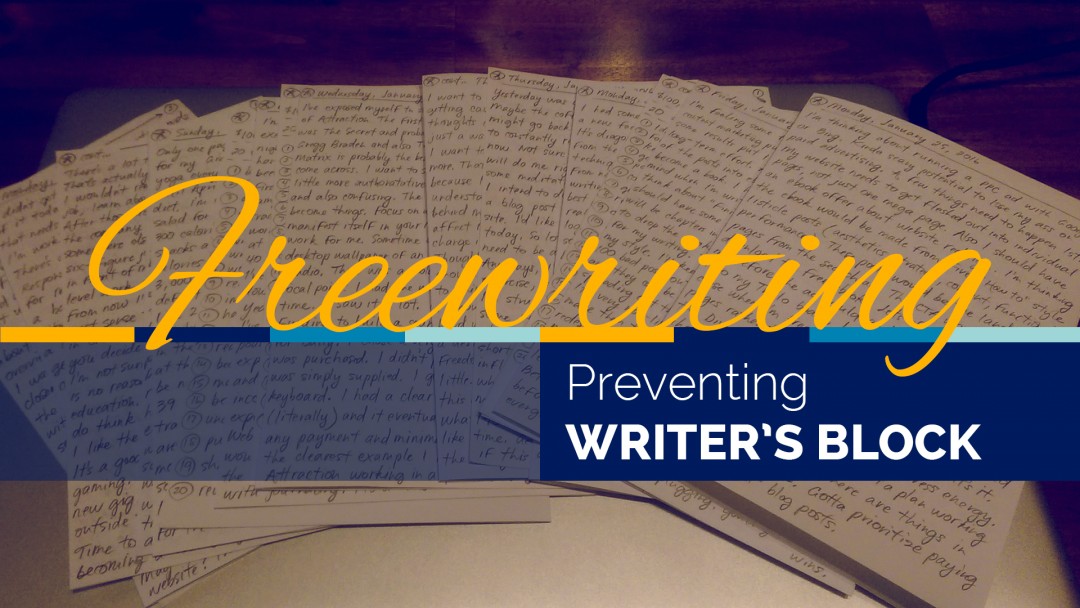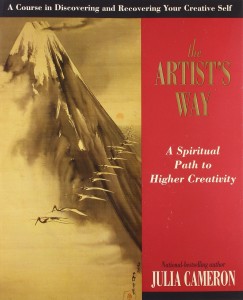What’s the best way to prevent writer’s block?
The pain of writer’s block impacts every creative professional. You don’t need to be a writer to know it. A blank canvas impacts creatives, entrepreneurs and small business owners in the same way. Writer’s block is creative inertia. It’s quicksand. It’s fear, procrastination, perfectionism and doubt rolled into one. Real writer’s block is heavy. When you have writer’s block, you need help.
There are countless strategies to overcome writer’s block. Some are better than others. Coffee, brainstorming and jogging work best for me. But these are just coping strategies. I’d rather prevent writer’s block than cope with it. So what’s the cure to writer’s block? For my money, it’s freewriting. Consistent freewriting prevents writer’s block from halting creativity.
“An ounce of prevention is worth a pound of cure.” — Benjamin Franklin
How freewriting prevents writer’s block
Freewriting is exactly what it sounds like. It’s free from constraint. It’s loosey-goosey. The beauty of freewriting is there are no rules. It’s obstacle free. Freewriting is anything you want it to be. For me, it’s pencil and paper. No lines; a blank sheet folded in half. You don’t need special sotware to overcome writer’s block.
Freewriting works like journaling. It helps clarify your thoughts. Freewriting can reduce stress and solve problems. It can resolve disagreements. It can help you know yourself better. Beyond the immediate benefits, freewriting builds a habit of creativity. It gives you momentum. If writer’s block is inertia, momentum is part of the cure.
Get your juices flowing with morning pages and freewriting
About ten years ago I was in a creative rut. Writer’s block doesn’t begin to describe it. Maybe writer’s funk is a better term. It was bad. The desire to create was there, but I scrutinized everything I did. Nothing was good enough. I was beating myself up and slowing myself down. I was my own worst critic.
Luckily I stumbled across The Artist’s Way by Julia Cameron. It’s an inspiring book about creativity. My key takeaway was Julia’s recommendation for early morning writing; brain drain. This is where I learned to freewrite.
When your goal is brain drain, there’s nothing to critique. You can’t qualify or edit freewriting. You just write. The simple act of writing quiets the inner critic.
Julia’s morning pages exercise stuck with me. I’ve been writing them for ten years. My morning pages are creative kindling for the day. They’ve established a habit of action. They get me rolling. They’re a spark. And I haven’t had writer’s block in years. I credit Julia’s morning pages with keeping me away from creative paralysis.
Add some mental exercise to your freewriting
Loosey-goosey freewriting works wonders. But I get more out of it than momentum. Because I’m consistent, I spend hundreds of hours a year writing unpublished ideas. Creative kindling is nice but I want more from my investment. So over time I’ve modified my morning pages. The first page I write is still nothing but brain drain. Anything goes. It’s a warm-up. The second page is more focused. It’s freewriting with a purpose. Advanced freewriting, dare I say.
I got the idea for page two from Earl Nightingale. It’s a mental exercise from The Miracle of Your Mind. In short, you write a goal at the top of a sheet of paper and list 20 possible ways to reach it. Over the course of a year, you generate over 1,000 ideas using this method. How’s that for preventing writer’s block? There’s nothing like a stockpile of ideas for creative inspiration. To keep things interesting, I rotate the focus of my list every time I do it. I look at the exercise from three perspectives:
- 20 ways to improve what I’m now doing
- 20 reasons I’ll succeed in reaching my goal
- 20 actions I can take
Changing the perspective keeps it fresh. I sometimes generate redundant ideas, but the variety outweighs the overlap. And the sheer volume of ideas builds up in a hurry. If you want to fight writer’s block, give yourself a few thousand ideas to work with.
If you want to fight writer's block, give yourself a few thousand ideas to work with. Share on XThe practice of freewriting
Freewriting develops the habit of creativity. It’s good practice over time. It kills creative inertia with momentum. It provides a consistent creative spark. Freewriting prevents writer’s block. So skip the quick-fix writer’s block coping strategies. Sit down, write, rinse, repeat. The more you put into it, the more it gives back.








